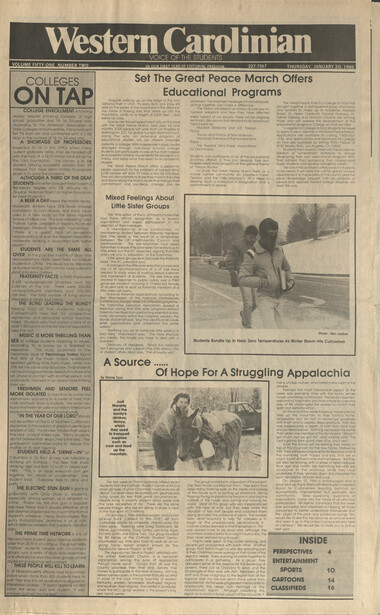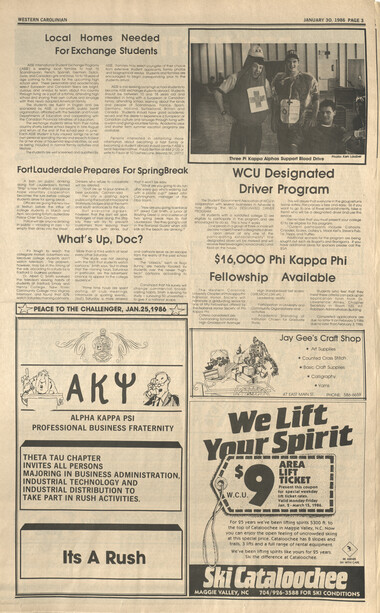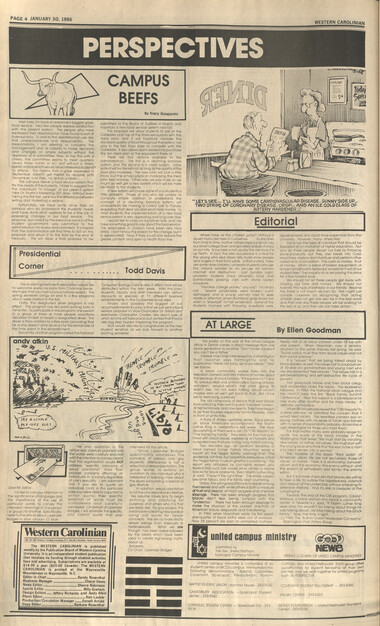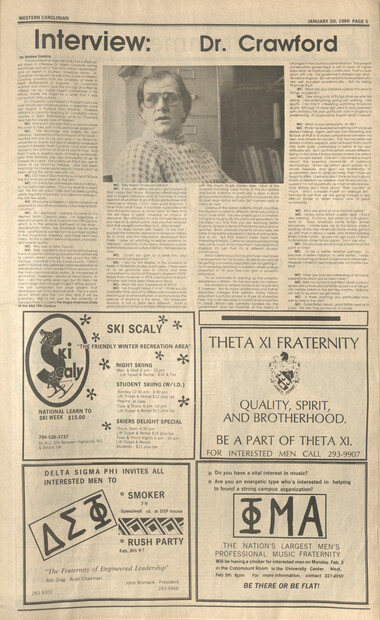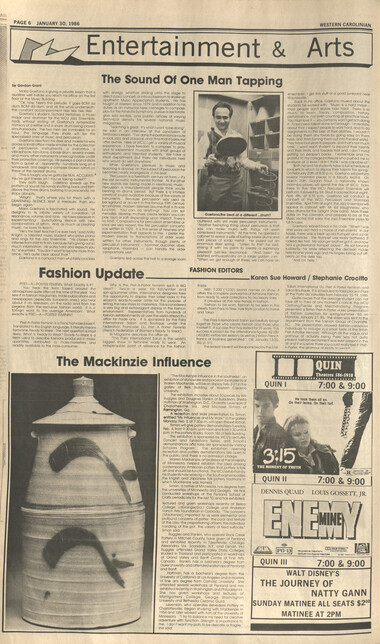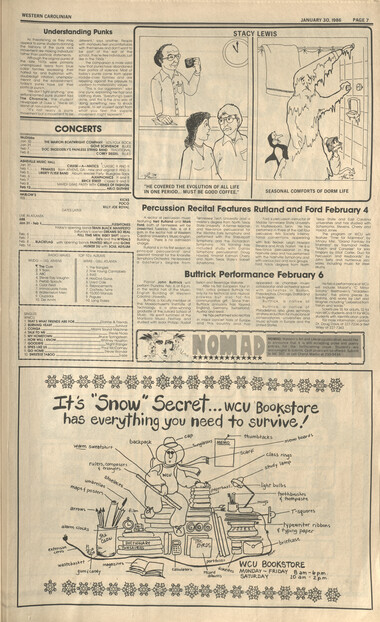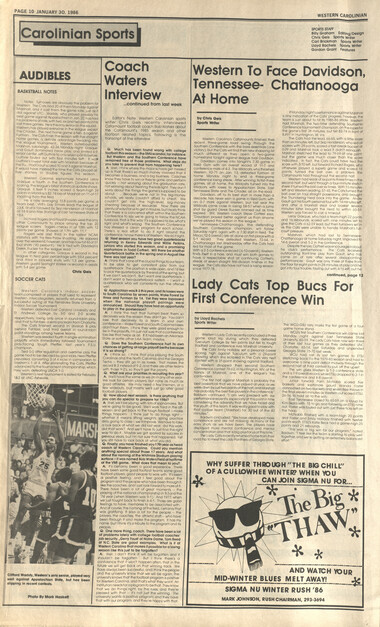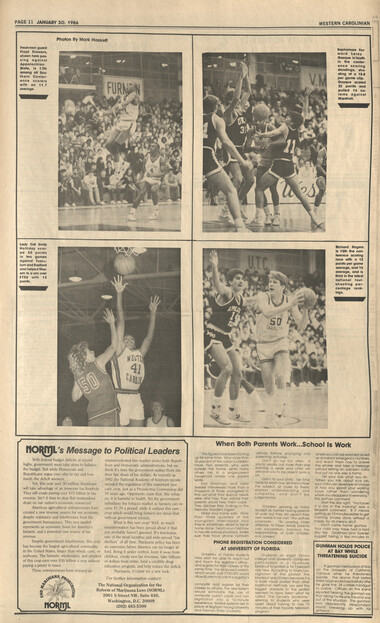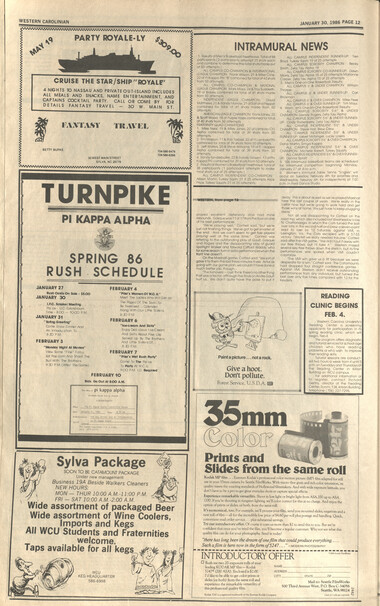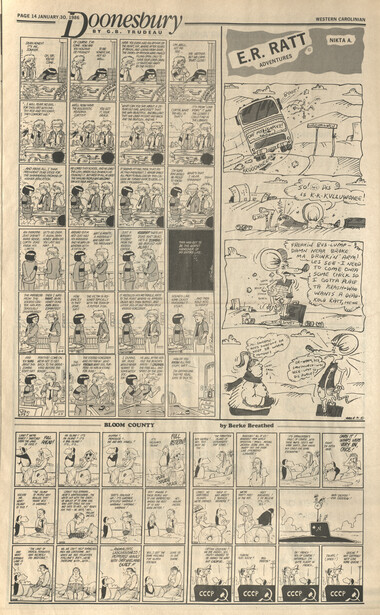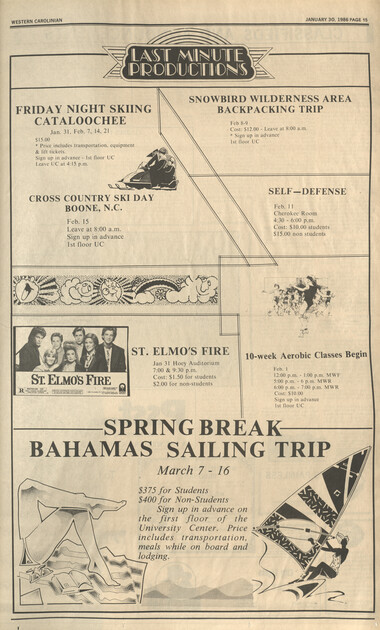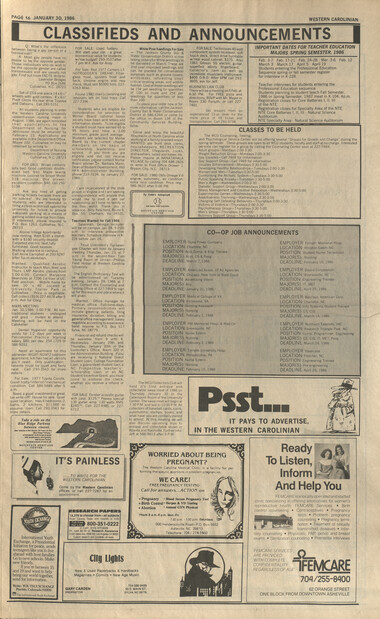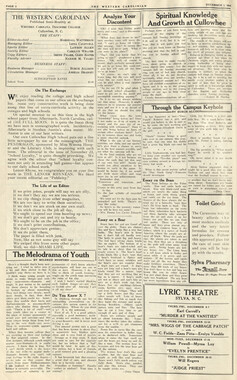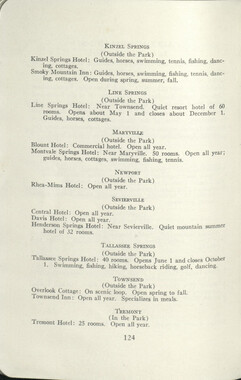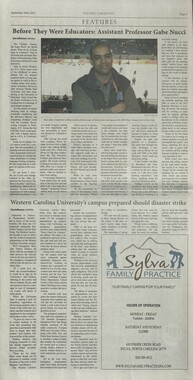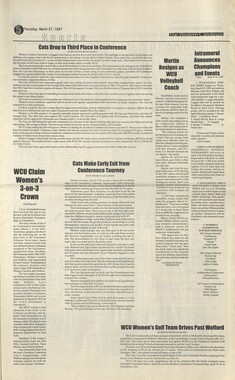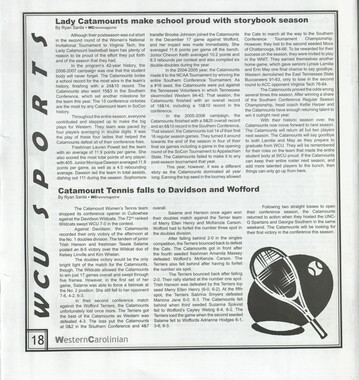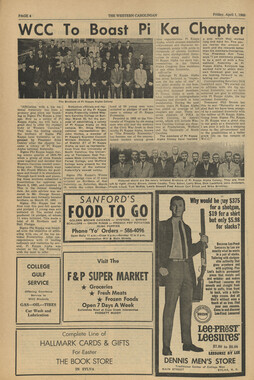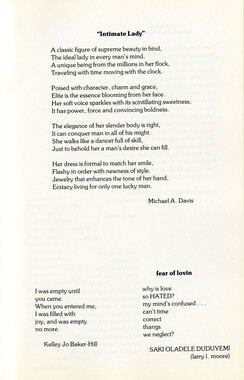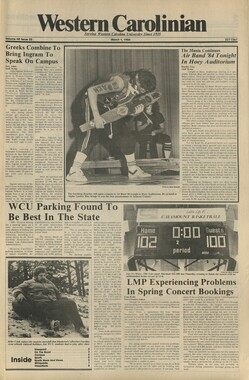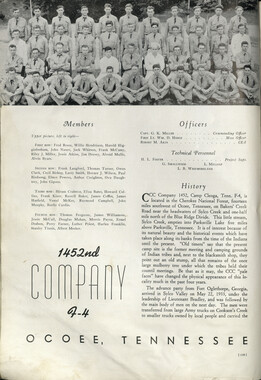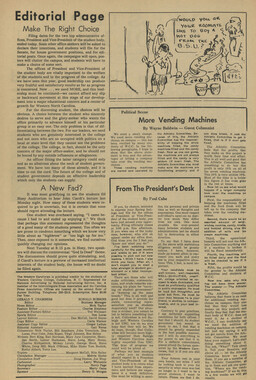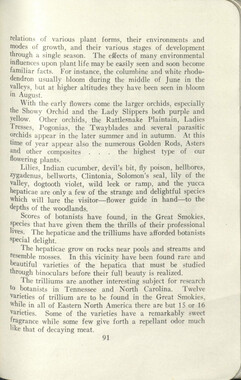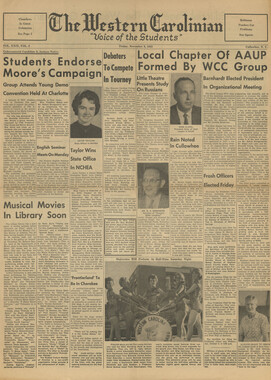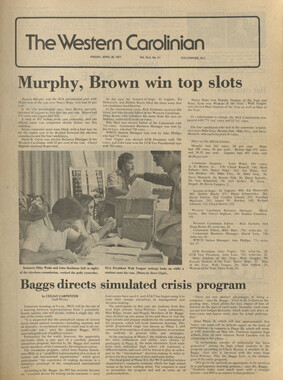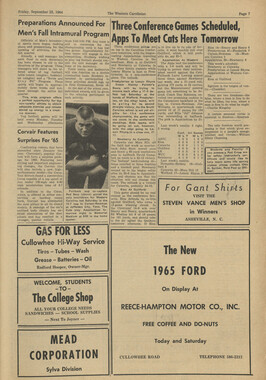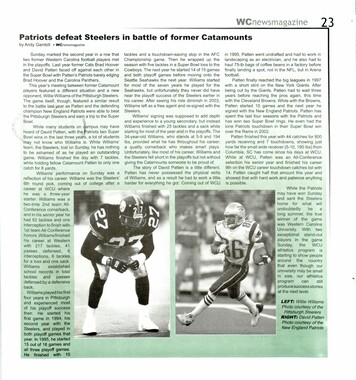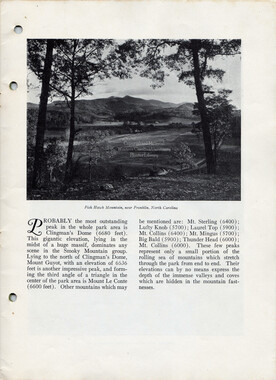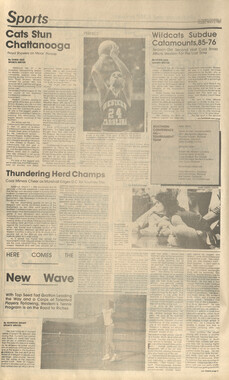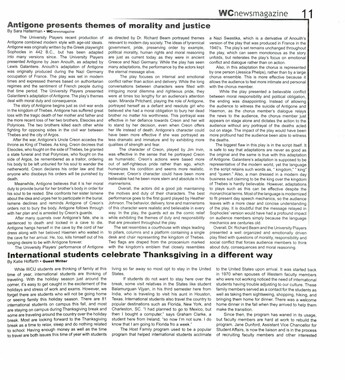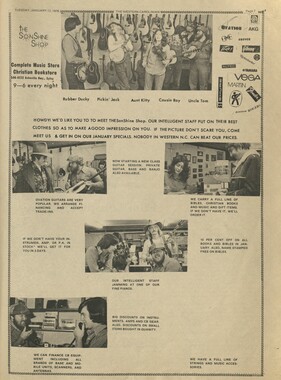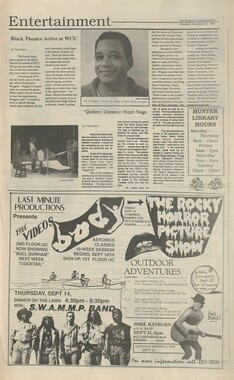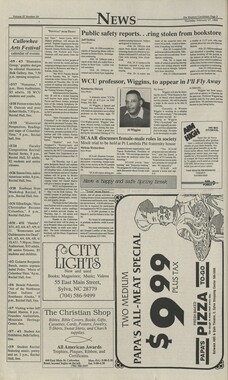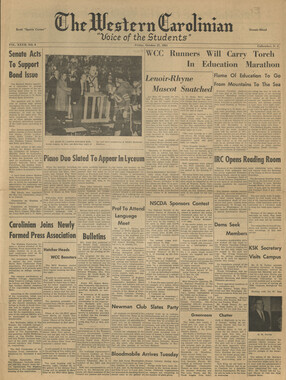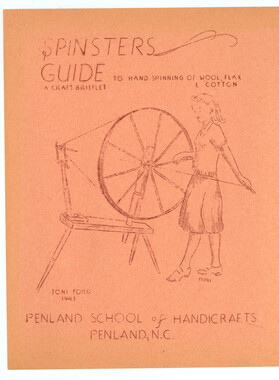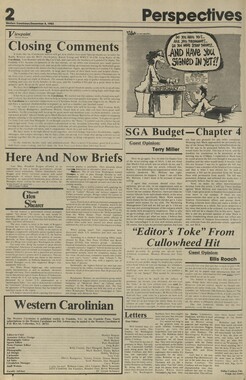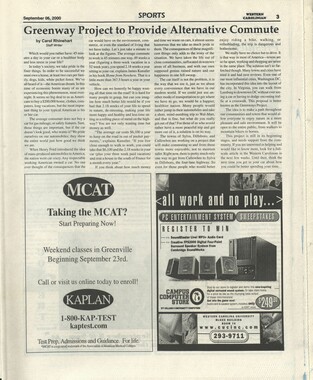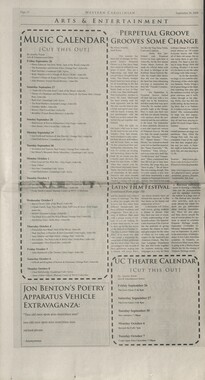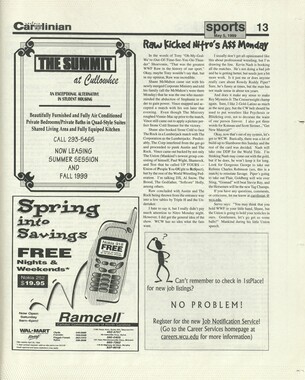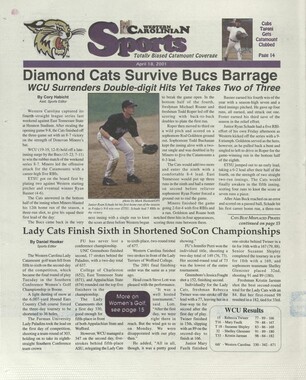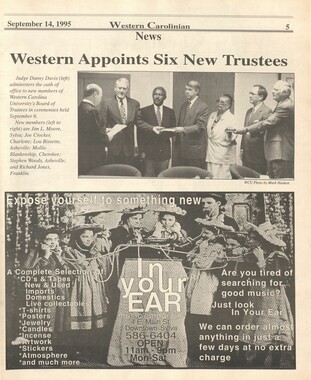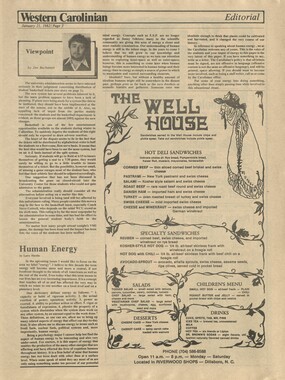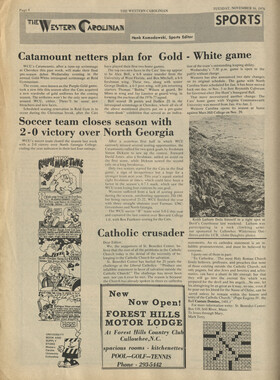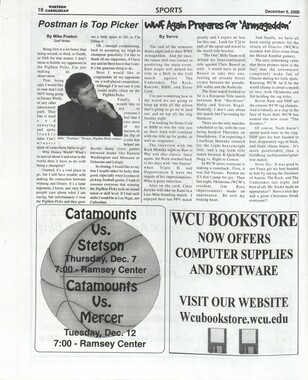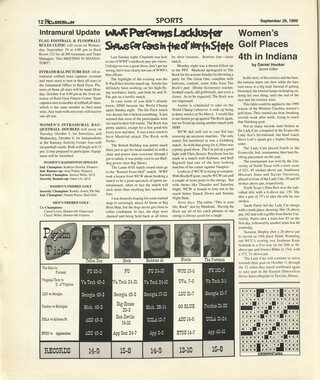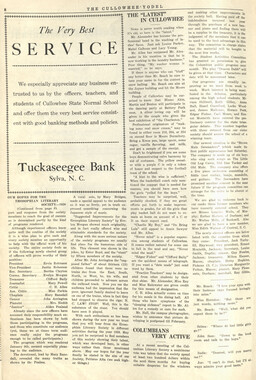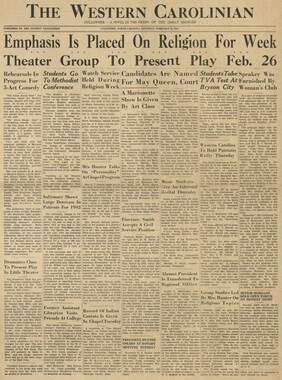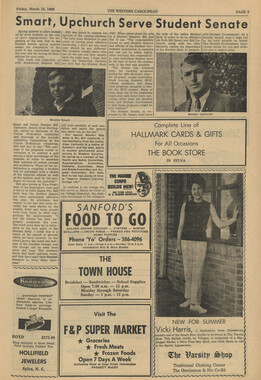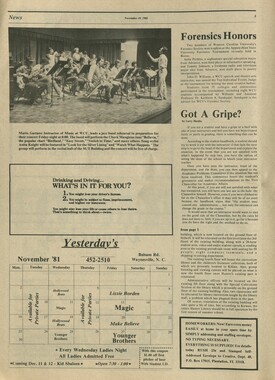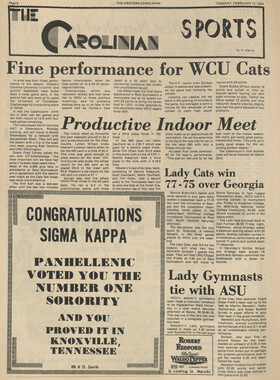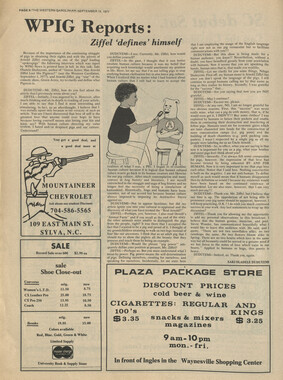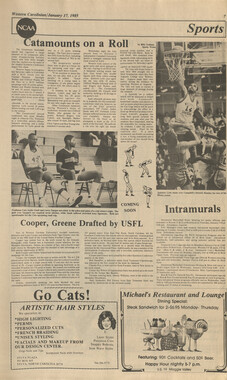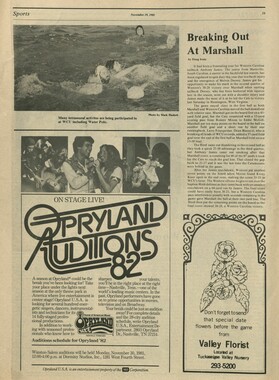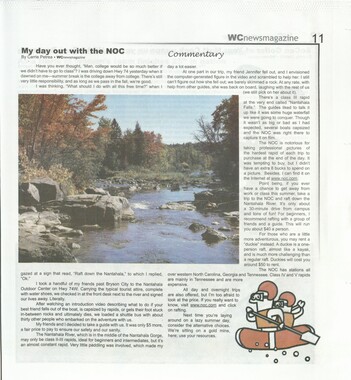Western Carolina University (20)
View all
- Canton Champion Fibre Company (2308)
- Cherokee Traditions (291)
- Civil War in Southern Appalachia (165)
- Craft Revival (1942)
- Great Smoky Mountains - A Park for America (2946)
- Highlights from Western Carolina University (430)
- Horace Kephart (941)
- Journeys Through Jackson (159)
- LGBTQIA+ Archive of Jackson County (85)
- Oral Histories of Western North Carolina (314)
- Picturing Appalachia (6873)
- Stories of Mountain Folk (413)
- Travel Western North Carolina (160)
- Western Carolina University Fine Art Museum Vitreograph Collection (129)
- Western Carolina University Herbarium (92)
- Western Carolina University: Making Memories (738)
- Western Carolina University Publications (2491)
- Western Carolina University Restricted Electronic Theses and Dissertations (146)
- Western North Carolina Regional Maps (71)
- World War II in Southern Appalachia (131)
University of North Carolina Asheville (6)
View all
- Allanstand Cottage Industries (62)
- Appalachian National Park Association (53)
- Bennett, Kelly, 1890-1974 (1463)
- Berry, Walter (76)
- Brasstown Carvers (40)
- Carver, George Washington, 1864?-1943 (26)
- Cathey, Joseph, 1803-1874 (1)
- Champion Fibre Company (233)
- Champion Paper and Fibre Company (297)
- Cherokee Indian Fair Association (16)
- Cherokee Language Program (22)
- Crowe, Amanda (40)
- Edmonston, Thomas Benton, 1842-1907 (7)
- Ensley, A. L. (Abraham Lincoln), 1865-1948 (275)
- Fromer, Irving Rhodes, 1913-1994 (70)
- George Butz (BFS 1907) (46)
- Goodrich, Frances Louisa (120)
- Grant, George Alexander, 1891-1964 (96)
- Heard, Marian Gladys (60)
- Kephart, Calvin, 1883-1969 (15)
- Kephart, Horace, 1862-1931 (313)
- Kephart, Laura, 1862-1954 (39)
- Laney, Gideon Thomas, 1889-1976 (439)
- Masa, George, 1881-1933 (61)
- McElhinney, William Julian, 1896-1953 (44)
- Niggli, Josephina, 1910-1983 (10)
- North Carolina Park Commission (105)
- Osborne, Kezia Stradley (9)
- Owens, Samuel Robert, 1918-1995 (11)
- Penland Weavers and Potters (36)
- Roberts, Vivienne (15)
- Roth, Albert, 1890-1974 (142)
- Schenck, Carl Alwin, 1868-1955 (1)
- Sherrill's Photography Studio (2565)
- Southern Highland Handicraft Guild (127)
- Southern Highlanders, Inc. (71)
- Stalcup, Jesse Bryson (46)
- Stearns, I. K. (213)
- Thompson, James Edward, 1880-1976 (226)
- United States. Indian Arts and Crafts Board (130)
- USFS (683)
- Vance, Zebulon Baird, 1830-1894 (1)
- Weaver, Zebulon, 1872-1948 (58)
- Western Carolina College (230)
- Western Carolina Teachers College (282)
- Western Carolina University (2008)
- Western Carolina University. Mountain Heritage Center (18)
- Whitman, Walt, 1819-1892 (10)
- Wilburn, Hiram Coleman, 1880-1967 (73)
- Williams, Isadora (3)
- Cain, Doreyl Ammons (0)
- Crittenden, Lorraine (0)
- Rhodes, Judy (0)
- Smith, Edward Clark (0)
- Appalachian Region, Southern (2569)
- Asheville (N.C.) (1923)
- Avery County (N.C.) (26)
- Blount County (Tenn.) (195)
- Buncombe County (N.C.) (1672)
- Cherokee County (N.C.) (283)
- Clay County (N.C.) (555)
- Graham County (N.C.) (236)
- Great Smoky Mountains National Park (N.C. and Tenn.) (519)
- Haywood County (N.C.) (3569)
- Henderson County (N.C.) (70)
- Jackson County (N.C.) (4912)
- Knox County (Tenn.) (35)
- Knoxville (Tenn.) (13)
- Lake Santeetlah (N.C.) (10)
- Macon County (N.C.) (420)
- Madison County (N.C.) (215)
- McDowell County (N.C.) (39)
- Mitchell County (N.C.) (132)
- Polk County (N.C.) (35)
- Qualla Boundary (982)
- Rutherford County (N.C.) (76)
- Swain County (N.C.) (2182)
- Transylvania County (N.C.) (270)
- Watauga County (N.C.) (12)
- Waynesville (N.C.) (86)
- Yancey County (N.C.) (72)
- Aerial Photographs (3)
- Aerial Views (60)
- Albums (books) (4)
- Articles (1)
- Artifacts (object Genre) (228)
- Bibliographies (1)
- Biography (general Genre) (2)
- Cards (information Artifacts) (38)
- Clippings (information Artifacts) (191)
- Copybooks (instructional Materials) (3)
- Crafts (art Genres) (622)
- Depictions (visual Works) (21)
- Design Drawings (1)
- Drawings (visual Works) (185)
- Envelopes (73)
- Exhibitions (events) (1)
- Facsimiles (reproductions) (1)
- Fiction (general Genre) (4)
- Financial Records (12)
- Fliers (printed Matter) (67)
- Glass Plate Negatives (381)
- Guidebooks (2)
- Internegatives (10)
- Interviews (815)
- Land Surveys (102)
- Letters (correspondence) (1013)
- Manuscripts (documents) (618)
- Maps (documents) (177)
- Memorandums (25)
- Minutes (administrative Records) (59)
- Negatives (photographs) (6090)
- Newsletters (1290)
- Newspapers (2)
- Notebooks (8)
- Occupation Currency (1)
- Paintings (visual Works) (1)
- Pen And Ink Drawings (1)
- Periodicals (193)
- Personal Narratives (10)
- Photographs (12976)
- Plans (maps) (1)
- Poetry (5)
- Portraits (4568)
- Postcards (329)
- Programs (documents) (181)
- Publications (documents) (2443)
- Questionnaires (65)
- Relief Prints (26)
- Sayings (literary Genre) (1)
- Scrapbooks (282)
- Sheet Music (2)
- Slides (photographs) (402)
- Songs (musical Compositions) (2)
- Sound Recordings (796)
- Specimens (92)
- Speeches (documents) (18)
- Tintypes (photographs) (8)
- Transcripts (322)
- Video Recordings (physical Artifacts) (23)
- Text Messages (0)
- A.L. Ensley Collection (275)
- Appalachian Industrial School Records (7)
- Appalachian National Park Association Records (336)
- Axley-Meroney Collection (2)
- Bayard Wootten Photograph Collection (20)
- Bethel Rural Community Organization Collection (7)
- Blumer Collection (5)
- C.W. Slagle Collection (20)
- Canton Area Historical Museum (2110)
- Carlos C. Campbell Collection (462)
- Cataloochee History Project (64)
- Cherokee Studies Collection (4)
- Daisy Dame Photograph Album (5)
- Daniel Boone VI Collection (1)
- Doris Ulmann Photograph Collection (112)
- Elizabeth H. Lasley Collection (1)
- Elizabeth Woolworth Szold Fleharty Collection (4)
- Frank Fry Collection (95)
- George Masa Collection (173)
- Gideon Laney Collection (452)
- Hazel Scarborough Collection (2)
- Hiram C. Wilburn Papers (28)
- Historic Photographs Collection (236)
- Horace Kephart Collection (861)
- Humbard Collection (33)
- Hunter and Weaver Families Collection (1)
- I. D. Blumenthal Collection (4)
- Isadora Williams Collection (4)
- Jesse Bryson Stalcup Collection (47)
- Jim Thompson Collection (224)
- John B. Battle Collection (7)
- John C. Campbell Folk School Records (80)
- John Parris Collection (6)
- Judaculla Rock project (2)
- Kelly Bennett Collection (1482)
- Love Family Papers (11)
- Major Wiley Parris Civil War Letters (3)
- Map Collection (12)
- McFee-Misemer Civil War Letters (34)
- Mountain Heritage Center Collection (4)
- Norburn - Robertson - Thomson Families Collection (44)
- Pauline Hood Collection (7)
- Pre-Guild Collection (2)
- Qualla Arts and Crafts Mutual Collection (12)
- R.A. Romanes Collection (681)
- Rosser H. Taylor Collection (1)
- Samuel Robert Owens Collection (94)
- Sara Madison Collection (144)
- Sherrill Studio Photo Collection (2558)
- Smoky Mountains Hiking Club Collection (616)
- Stories of Mountain Folk - Radio Programs (374)
- The Reporter, Western Carolina University (510)
- Venoy and Elizabeth Reed Collection (16)
- WCU Gender and Sexuality Oral History Project (32)
- WCU Mountain Heritage Center Oral Histories (25)
- WCU Oral History Collection - Mountain People, Mountain Lives (71)
- WCU Students Newspapers Collection (1923)
- Western North Carolina Tomorrow Black Oral History Project (69)
- William Williams Stringfield Collection (2)
- Zebulon Weaver Collection (109)
- African Americans (390)
- Appalachian Trail (35)
- Artisans (521)
- Cherokee art (84)
- Cherokee artists -- North Carolina (10)
- Cherokee language (21)
- Cherokee pottery (101)
- Cherokee women (208)
- Church buildings (189)
- Civilian Conservation Corps (U.S.) (111)
- College student newspapers and periodicals (2012)
- Dams (107)
- Dance (1023)
- Education (222)
- Floods (61)
- Folk music (1015)
- Forced removal, 1813-1903 (2)
- Forest conservation (220)
- Forests and forestry (1184)
- Gender nonconformity (4)
- Great Smoky Mountains National Park (N.C. and Tenn.) (181)
- Hunting (45)
- Landscape photography (25)
- Logging (119)
- Maps (83)
- Mines and mineral resources (8)
- North Carolina -- Maps (18)
- Paper industry (38)
- Postcards (255)
- Pottery (135)
- Railroad trains (72)
- Rural electrification -- North Carolina, Western (3)
- School integration -- Southern States (2)
- Segregation -- North Carolina, Western (5)
- Slavery (5)
- Sports (452)
- Storytelling (243)
- Waterfalls -- Great Smoky Mountains (N.C. and Tenn.) (66)
- Weaving -- Appalachian Region, Southern (280)
- Wood-carving -- Appalachian Region, Southern (328)
- World War, 1939-1945 (173)
Western Carolinian Volume 51 Number 02
Item
Item’s are ‘child’ level descriptions to ‘parent’ objects, (e.g. one page of a whole book).
-
-
WESTERN CAROLINIAN JANUARY 30, 1986 PAGE 13 Harvard Disciplines Anti-Apartheid Protestors In its summary of disciplinary action for blockading a South African diplomat last spring, Harvard's Committee on Rights and Responsibilities reports: "Fourteen students were charged with the Lowell House incident. Charges against four students were dismissed. Ten students were required to withdraw from the University for varying periods of time, with the requirement suspended. In the event of any further misconduct during the period of suspension deemed by the committee to warrant disciplinary action, the suspension will be nullified and the requirement that the students withdraw will take effect." Excerpts from the 27-page Report; "Large-scale student activism had been rare on American campuses for more than a decade when, in the spring of 1985, growing numbers of students at Harvrd and elsewhere became increasingly concerned about issues connected with South Africa. Many demonstrations during that spring, including a mass rally in Harvard Yard, expressed dissent on this issue in a legitimate fashion." "The free exercise of the rights of dissent is explicitly protected by the Faculty's Resolution on Rights and Responsibilities. Unhappily, two incidents involved actions that apparently went beyond those protected rights, and violated rights of others. In connection with the two incidents, therefore, charges of violations of the RRR were loOgeO against 18 students by the Dean of Students. The committee does not itself lodge charges of misconduct. Charges of this nature were made by several students in connection with the Lowell House incident. "The incidents of last spring raise for the first time in many years, questions of application: what specific kinds of behavior fall within and without the bounds enshrined in the Resolution. The crux of the matter, of course, is that different rights and different responsibilities sometimes come into conflict." "Such conflict is inevitable in any setting in which discourse involving differing opinions on issues of great importance is a significant part of ongoing activity. It is especially so in a university community, for here reasoned discourse is the fundamental rationale for the community's existence." The Resolution states: "the University places special emphasis upon certain values which are essential to its nature as an academic community. Among these are freeOom of speech, freedom from personal force and violence, and freedom of movement." "Especially in the incident at Lowell House there can be no doubt that serious violations of these freedoms occurred. Estimates of the composition of the crowd withing the foyer vary somewhat. In total, more than 100 people, ana perhaps as many as 200, were packed into the small, enclosed area. (The foyer is approximately 30feet long and 10 feet wide.) "One prominent group of about a half-dozen very vocal protestors consistently heckled moderate speakers and seemed intent on inciting violent confrontation. A larger number of anti-apartheid protestors favored blockading the consul through 'passive' or 'non-violent civil disobedience,' and seemed willing or even eager to court arrest. A proposal to hold the consul 'until midnight' was put to a vote. This proposal received substantial support in a show of hands, and both the police and the college officials who were present interpreted this vote as decisive." -"University officials have an unavoidable dual role in any serious incident: persuasion, on the one hand, and discipline, on the other. Tension between these roles is inevitable, particularly when they are performed by the same individual. The community must therefore be prepared to live with some degree of ambiguity. --'Responsible officials can minimize this ambiguity, by exercising care not to make statements or take actions that may seem to give endorsement to a situation that they have deemed to violate the RRR, but they cannot eliminate this ambiguity entirely with sacrificing much that the community values highly." Understanding and Helping the Lonely Student How to Recognize Love on the Rocks What kind of students cross campus harnessed by stereo earphones, spend their spare time glued to MTV, video games and computers, and live lives as electronic hermits in the midst of warmblooded intellectual alternatives? Lonely students. Recent studies have shown that loneliness pervaOes the college campus, and Richard Booth, professor of psychology at Black Hawk College, warns of "a loss of human potential on a grand scale when students become and remain lonely." Lonely stuOents, according to Booth, withhold their talents, opinions ana personalities, and thus fail to take full advantage of the community of scholarship. If they are lonely for long, the problem is complicated by depression, and the students reinforce their loneliness by backing off from meaningful interaction. What is loneliness? Our usual concepts of loneliness are faulty. Simply being alone a lot does not constitute loneliness. In fact, Boothe says, escaping to a place where one is alone is common and often therapeutic. Furthermore, it is possible to be "buried in relationships" and still be lonely. Nor is being alone the same thing as being depressed. Although commonly confused, the conditions are different. Loneliness is a combination of our interpretations and assumptions about life, events and relationships, and the emotions those interpretations and assumptions generate, Lonely students have negative interpretations ana expectations about life. They tend to be more critical and fearful of others, more angry and self- protective than non-lonely students. They assume that people do not want, understand or care about them. They see their relationships as not meeting their needs, and sometimes lack the skill to change their relations. their needs, and sometimes lack the skill to change their relations. Often, lonely students remain lonely because they can't initiate and maintain intimate relations. In conversations with members of the opposite sex, they talk about themselves to the exclusion of the partner's interest. They tend to be much less altruistic and more egocentric - and on campus are given to alcoholism and suicide. What to do 'Think of students as whole people, not a collection of test-taking brain cells. "Accept student loneliness as a real human problem, and reject the idea that it is a weakness or a willfully self-induced isolation. "Be patient with lonely students. Don't hurry them away because they are so critical and negative. "Recognize, and overcome, the tenaency you may have for avoiding lonely students because they are "downers." "Boost lonely students' self-esteem by focusing on their assets and accomplishments, and not their shortcomings. "If students express their loneliness to you, or if you somehow determine they are lonely, refer them to a counseling center. "Develop, with the aid of professional counselors, workshops and seminars on loneliness in general, and student loneliness in specific. "Provide a role model by not being overly critical, and by remaining open to meaningful interaction with colleagues and students. (Source: The American Association of Community and Junior Colleges' AACJC Journal, October/November 1985. See also, "Toward an Understanding of Loneliness, Social Work 28, No 2, March/ April 1983.) Since dating and drinking are two of the more popular student activities on most American campuses, it behooves students to learn to recog nize signs of problem drinking in their dates. Dr. Joseph Pursch, writing in the Los Angeles Times, suggest students ask the following questions: Have you wondered why drinking is so important to your companion? Has your own drinking increased since the two of you met? Do you sometimes drink, when you'd rather not, just to be together? Does your parnter show up for dates smelling of alcohol?. Is there a ready-made excuse why your date "just had to" have a drink with so-and-so? Does every occasion begin, and end, with drinks? If there's no alcohol at the party when you arrive, does your companion go to great lenghts to get some even though others just as soon not bother? Does your partner urge-or push-you and your friends to join in the drinking, and to go on drinking when others think it's time to quit? When you want to discuss something "heavy" or serious, does your companion say "let me get a Orink first," or "Let me freshen your drink before we get into this?" Has your partner ever not been drinking before the two of you had sex? Does he or she look uncomfortable or incredulous when you suggest that sometimes you'd like to try it without drinking? Can your companion drink amazing amounts and not show the effects? Dr.Pursch says that if any of the above questions apply, you and your partner need to discuss it. If he or she refuses to discuss it, or if the problem persists after discussing it, your "love boat" is sinking and it's time to jump ship. Stash your trash. 352 EAST MAIN, SYLVA 586-6550 586-8612 — When you're looking for something special to convey your sentiments. . . ■k Original floral designs by experienced professionals, in fresh or silk •kballoons, plush toys, unique gifts •kfuil greenhouse selection * 100% satisfaction guaranteed * daily delivery ^H leaders in originality . . . :::tiv: ksSSsSsSss JERRY ADJACENT TO THE CULLOWHEE POST OFFICE AND BESIDE CULLOWHEE QUICK STOP OPEN 24 HOURS DRIVE THROUGH WINDOW * HOME MADE CHILI WITH BEANS * HOT DOGS WITH HOME MADE CHILI * SALAD BAR * BISCUITS * CHICKEN STRIPS * VARIETY OF DINNER PLATES "VARIETY OF HAMBURGERS *. RAnS^AG°N * FRENCH FRIES * SOFT SERVE ICE CREAM * CHICKEN SANDWICH DURING THE NIGHT HOURS YOU CAN ORDER ANYTHING AVAILABLE YOU DESIRE STUDENTS, FACULTY, FRATERNITIES, AND SORORITIES WE ARE LOOKING FORWARD TO SERVING YOU SENIOR CITIZENS - FREE COFFEE AVAILABLE ESPECIALLY FOR YOU SHRIMP ■i ■
Object
Object’s are ‘parent’ level descriptions to ‘children’ items, (e.g. a book with pages).
-
The Western Carolinian is Western Carolina University's student-run newspaper. The paper was published as the Cullowhee Yodel from 1924 to 1931 before changing its name to The Western Carolinian in 1933.
-


